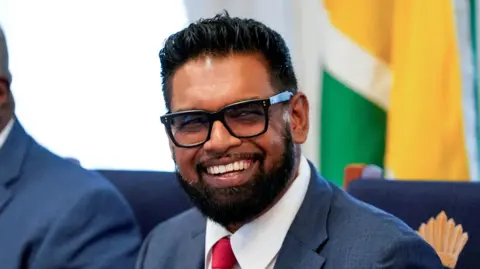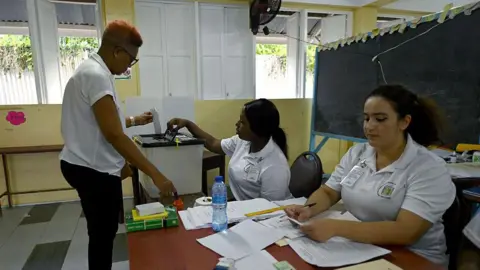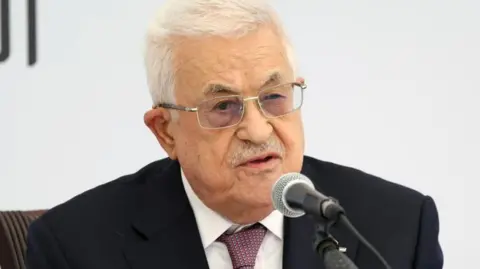On Sunday, Venezuela is scheduled to conduct elections for a governor and legislators in the Essequibo region, a territory rich in oil, yet internationally recognized as part of Guyana. This controversial electoral move, orchestrated by President Nicolás Maduro, has stirred significant concerns, as the vast majority of the 125,000 residents living in Essequibo, alongside most nations, affirm its affiliation with Guyana rather than Venezuela.
By staging these elections in Essequibo, Maduro likely aims to enhance both international legitimacy and bolster domestic support amidst widespread dissatisfaction in Venezuela, particularly as loyalty within the military appears to be diminishing. In the previous year, Maduro had asserted victory in his presidential election, a claim met with skepticism as independent election monitors reported an overwhelming victory for his competitor. This led to numerous countries, including the United States, refusing to acknowledge Maduro's legitimacy.
With reports suggesting significant dissent within military ranks, including substantial opposition to Maduro's regime as indicated by vote counts from military barracks, analysts posit that the elections could serve dual purposes. Not only might they attempt to consolidate Maduro's power by reinforcing a façade of authority, but they also risk escalating the territorial dispute with Guyana, a country with whom Venezuela has engaged in conflicts over land.
By staging these elections in Essequibo, Maduro likely aims to enhance both international legitimacy and bolster domestic support amidst widespread dissatisfaction in Venezuela, particularly as loyalty within the military appears to be diminishing. In the previous year, Maduro had asserted victory in his presidential election, a claim met with skepticism as independent election monitors reported an overwhelming victory for his competitor. This led to numerous countries, including the United States, refusing to acknowledge Maduro's legitimacy.
With reports suggesting significant dissent within military ranks, including substantial opposition to Maduro's regime as indicated by vote counts from military barracks, analysts posit that the elections could serve dual purposes. Not only might they attempt to consolidate Maduro's power by reinforcing a façade of authority, but they also risk escalating the territorial dispute with Guyana, a country with whom Venezuela has engaged in conflicts over land.




















